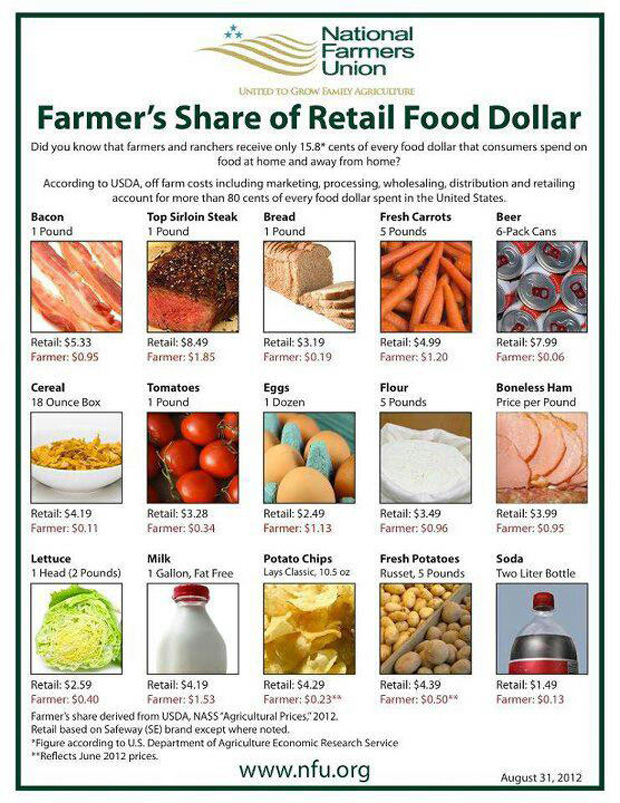Farm to Table Benefits are Endless

Ever wonder where that deliciously ripe apple you bought came from? Or who harvested the colorful array of vegetables in last night's dinner? If not you might want to think about educating yourself on Farm to Table. Farm to Table distributes 'locally grown farm products to area restaurants, commercial kitchens, cafeterias, and independent grocery stores.' The products available through Farm to Table include fruits, vegetables, cage-free eggs, herbs, cheese, grass-fed beef and lamb, pasture-raised chicken, and pork, all raised without hormones or antibiotics.
So what are the benefits of buying local? Honestly, they're endless. First of all there is the taste factor. Local products mean less time on a truck or in transit, which mean fresher and more nutrient-rich foods. Farm to Table produce is typically harvested within 36 hours of delivery, so they have more time to ripen "on the vine". If that's not enough to convince you, take a look at the local economy. Buying local keeps your dollars in the Austin area, which benefits everyone. According to farmtotabletx.com, 'a local farm’s income generated twice as much money for the local economy as a supermarket’s income in the same area.'
Another perk of buying local is that you won't have to wonder what's in season. Farm to Table posts weekly updates on what's growing in your area so you can make sure you are getting products that are 'at their peak, are most abundant, and the least expensive.' And last (but not least) there is the sustainability factor. Farmtotabletx.com lists the following as qualities (from the 1990 Farm Bill) for "sustainable agriculture":
- Satisfy human food and fiber needs.
- Enhance environmental quality and the natural resource base upon which the agricultural economy depends.
- Make the most efficient use of nonrenewable resources and on-farm resources, and integrate, where appropriate, natural biological cycles and controls.
- Sustain the economic viability of farm operations.
- Enhance the quality of life for farmers and society as a whole.
Sustainability practices benefit the longevity of the farmland, use 'less non-renewable resources, make less impact on the environment, and grow a healthy and profitable end product. Sustainable methods include important practices like biodiversity, water conservation, and environmental protection.'
The graphic below from the National Farmers Union details how much money the farmers see from their products sold in grocery stores. As you can see they only receive a fraction of the retail price after all of the various costs involved with processing, distribution, etc.

sources: farmtotabletx.com






